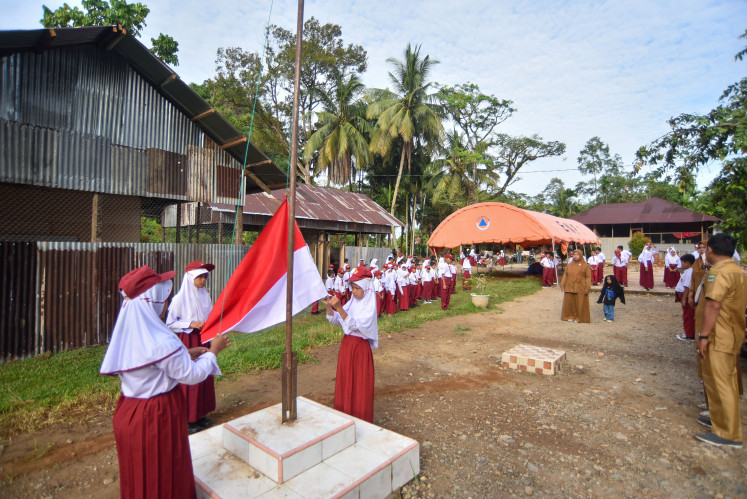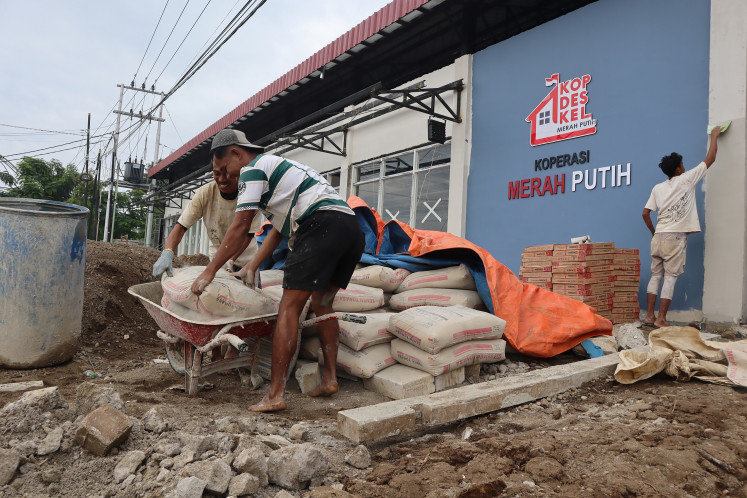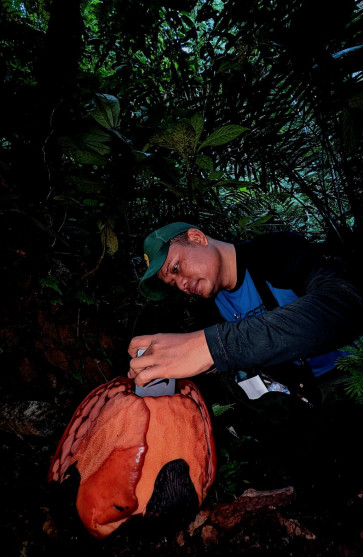Popular Reads
Top Results
Can't find what you're looking for?
View all search resultsPopular Reads
Top Results
Can't find what you're looking for?
View all search resultsWhat the Rafflesia controversy reveals about scientific collaboration
The Rafflesia flower case shows Western researchers always become protagonists by default, while local collaborators become scenery, regardless of their actual contributions.
Change text size
Gift Premium Articles
to Anyone
W
hen Oxford University initially posted an Instagram to celebrate the discovery of a rare Rafflesia hasseltii in West Sumatra, it credited only British botanist Chris Thorogood, failing to name the Indonesian researchers who made the discovery possible.
Indonesian researchers and the public responded decisively. The backlash was swift and massive. Former Jakarta governor Anies Baswedan captured the collective anger in a viral post. "Our Indonesian researchers, Joko Witono, Septian Andriki and Iswandi, are not NPCs. Name them too," he said.
The metaphor struck a nerve. NPCs, or non-playable characters, exist only as background scenery in video games. They serve the hero's journey, but never become protagonists themselves. The comparison revealed a centuries-old pattern: Local knowledge is transformed into Western discovery through systematic erasure.
This controversy raises uncomfortable questions about how scientific collaboration actually works. Indonesia has laws to prevent knowledge extraction. International partnerships are supposed to ensure equal credit. Yet, the erasure happened anyway. Understanding why requires looking beyond individual mistakes to the structures that make such omissions routine.
The Oxford incident was not an isolated lapse in communication. Septian “Deki” Andriki spent 13 years searching for Rafflesia hasseltii. When he finally found the blooming flower, he wept with joy. Yet Oxford's institutional communications initially omitted Indonesian names entirely, while Thorogood's personal posts referred to them merely as “foresters of West Sumatra” who shared their “special flower”.
This pattern has a name in scientific circles: parachute science. Foreign researchers arrive, collect data using local expertise, and then publish without proper attribution. The practice remains common despite growing criticism. Research on coral reef studies published in 2021 found that host-nation scientists are excluded from authorship nearly twice as often when research is conducted in lower-income countries compared to high-income nations (Stefanoudis et al., 2021).
Each erasure compounds into a structural disadvantage. Indonesian researchers produce excellent science yet remain invisible in international narratives.



















